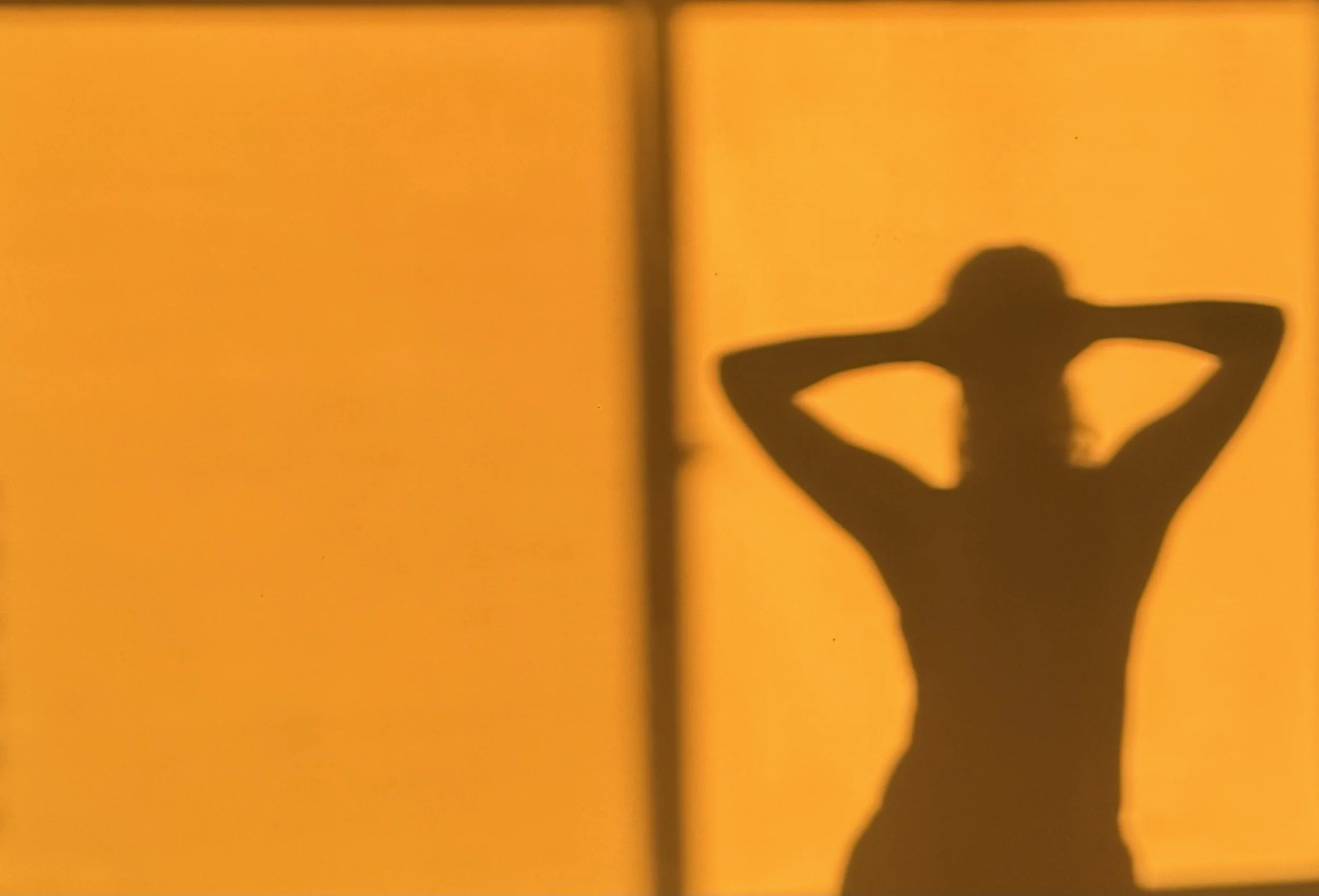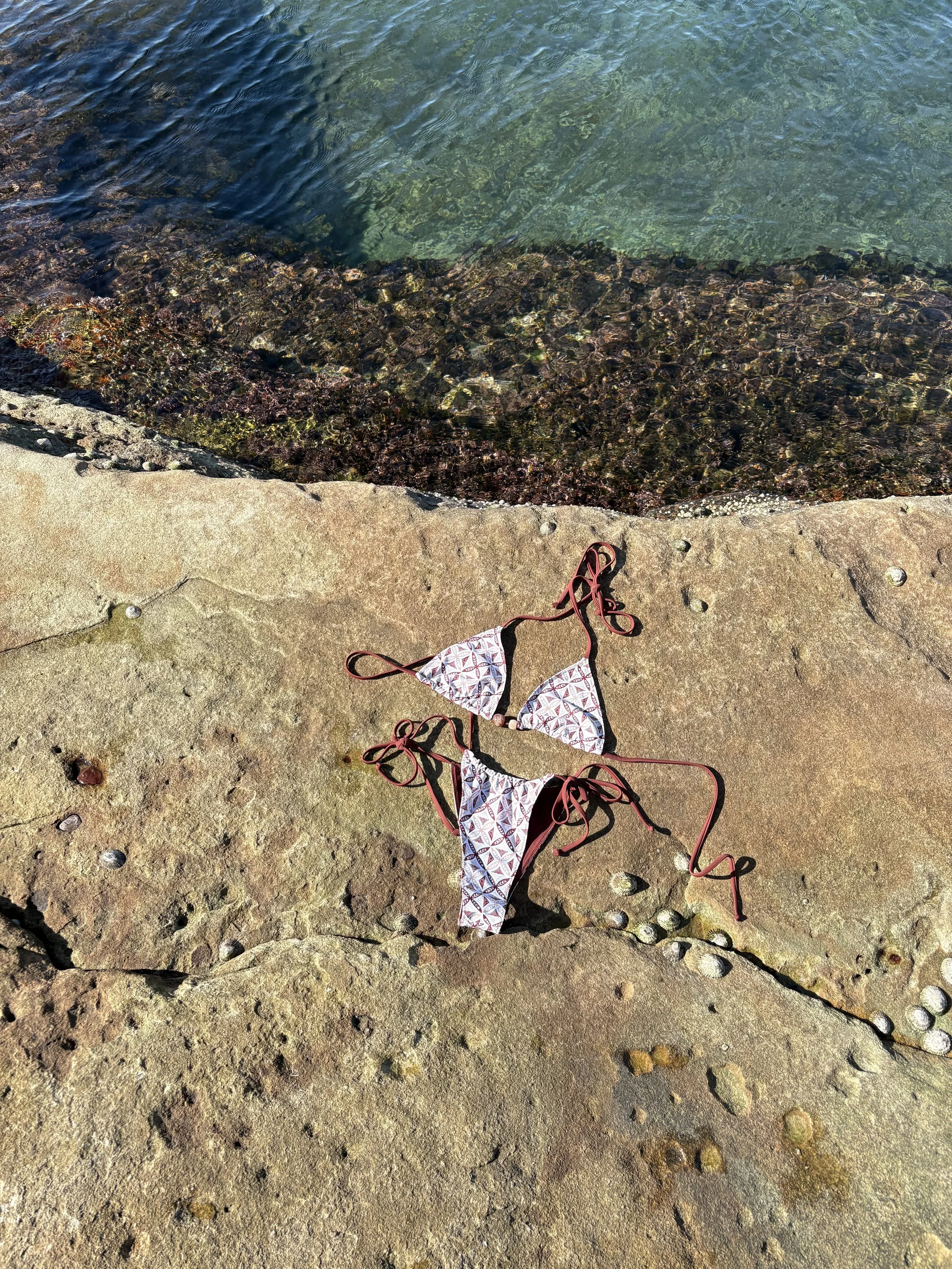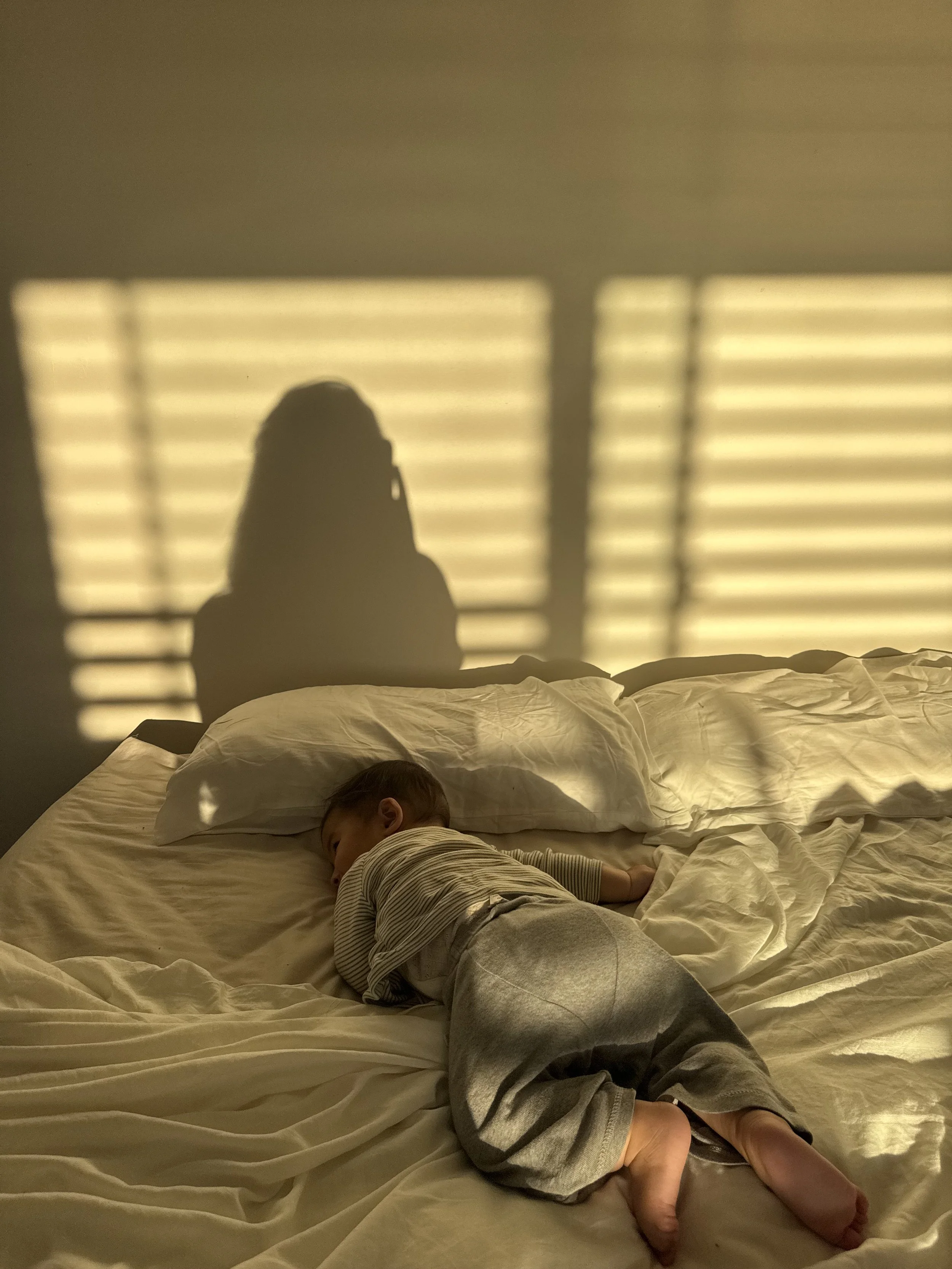In conversation with
There’s a steadiness to the way Brooklyn moves through the world, thoughtful but unafraid, articulate yet anchored. As a writer, mother, and Māori woman raising a son between cultures, she carries both heritage and responsibility with grace and intention.
In this conversation for An Ode to Her, Brooklyn speaks to the women who shaped her, the values she and her husband are nurturing in their home, and the quiet work of building cultural legacy from the inside out. Her reflections trace the shape of identity in motion, tender, rooted, and evolving.
What follows is not just a portrait of motherhood or culture, but a meditation on presence, and the kind of strength that’s formed over time.
Brooklyn Opetaia
How do you hope your son understands his identity, not just in labels, but in lived experience?
My dream for my son is that he would know who he is culturally and feel limitless because of it. Formerly, we’ve seen a world where our people are made to feel small because of our cultural history. But my dream for the next generation is that it would be their greatest blessing to be Polynesian. Our culture is our superpower, so as parents, it is our job to raise children who don’t just value the culture in our home, but also to raise children who would encourage others in their cultural expression.
The collaboration print ‘Sei’ reflects beauty, grief, and renewal. Can you share a moment in your journey where something fading made room for something new to bloom?
I think the journey of pregnancy, the fading of my ‘old-self’ and the blooming of my new self, mum, is the picture of “beauty, grief and renewal”. There’s been moments where I don’t completely recognise who I am when I look at myself, but it’s been balanced with the most beautiful moments of redefining myself. I truly feel like the day I met Blue was the day I re-met myself. And that day was the complete picture of beauty, grief and renewal.
How has writing and storytelling helped you make sense of identity?
I’ve always written. Words to Heal You started because writing was my safe space. I never thought of myself as a writer, more as someone who feels deeply. I think my gift is articulating feelings people have but don’t know how to say. Writing helps me understand myself. It connects my purpose to people.
“An Ode to Her” honours women as cultural carriers. In your own life, who are the women whose hands and hearts shaped the way you see the world
I was raised by my mum and my nana. Women have shaped my world since day one. From the very beginning of my life I got to witness, first hand, women dominating life with their head held high, despite the difficulties of single-motherhood. A core value my mother instilled in my life is the gift of communication. How communication holds power and still today my world has been shaped by my passion to communicate. As for my nana, she taught me about God from as early as I can remember. And my relationship with God is the central most part of my life, to this day. Without these values passed on to me, I wouldn’t be who I am today.
As a Māori woman raising a mixed-heritage son with your Samoan husband, what parts of culture are you consciously choosing to preserve, pass down, or reimagine in your household?
My husband and I are so passionate about and honoured to raise Polynesian children. We hold the pride of our cultures close to our hearts and want to instill key values in our family that have been carried through to us. Values like - respect, respect for elders, passion for family and being a close-knit unit. Strong work ethic but also strong boundaries. We are grateful to teach our son the beauty of faith and a relationship with God. We dream of raising a soft yet emotionally deep son who would challenge the current-world-narrative that boys would suppress their feelings.
What part of your story do you feel hasn’t been told enough?
I think people see me now, in this beautiful, victorious space. And that’s true, but there’s a whole story behind it. I came from a hard upbringing, hard mental health, and now I’m moving into something else. And that story, of becoming, of healing, of joy, that’s the one I’m ready to start telling.
How do you personally protect your cultural integrity in spaces that may not understand it, and how do you teach your son to do the same?
After some years living in London, seemingly the furthest place away from our homeland, I learnt that the world is so interested in our culture. London was a space that I expected to feel culturally held back or confused, yet it ended up being a place that I was culturally set ablaze. I learnt that, sometimes it's the spaces that don’t understand us that end up being the most valuable. I learned that when I show up passionate about my culture, passionate about telling the stories of our motherland, the more passionate and receptive people were to hear all about it. I even had English friends who took the time to learn their own mihi and would greet me with a “Kia Ora” when we’d see each other.
My dream is to show my son the world, as far and wide as I possibly can. I’ll encourage him to speak his language(s) and talk about his culture(s) to everyone and anyone who will listen and in return I pray that he’ll see a world of people who embrace his culture, just as I have seen myself.
For more of Brooklyn's writing, visit @wordstohealyou and www.wordstohealyou.com.





